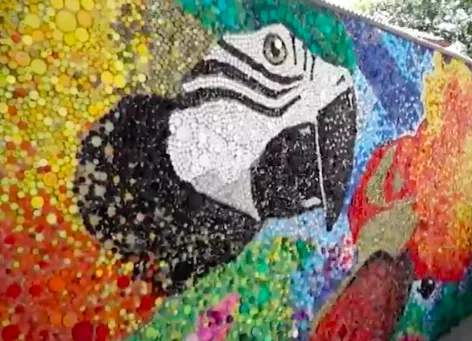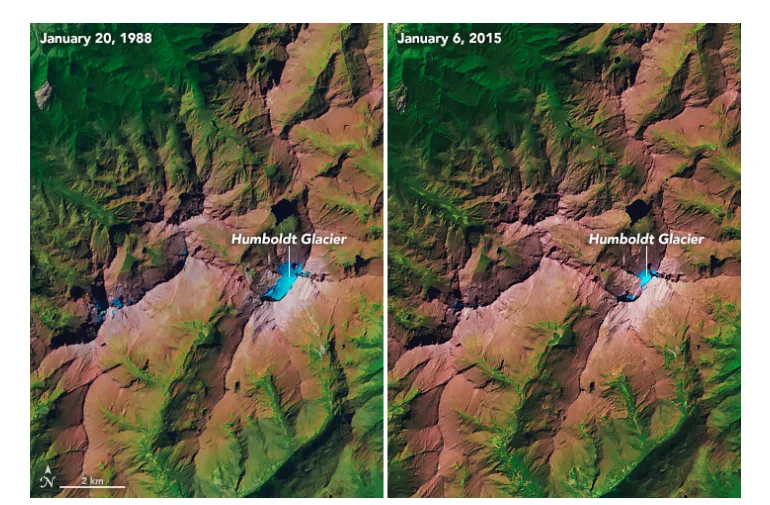
Artist uses 200,000 bottle caps to create stunning eco-mural
The eco-mural was built in an abandoned neighbourhood in Caracas, Venezuela that had become an unofficial landfill.
A mural in Venezuela has been making headlines, not just because of its beauty, but because of its environmental message.
Oscar Olivares, a 23-year-old artist from Venezuela, collaborated with local environmental organizations to create a massive mural using recycled plastic bottle caps and container lids, which can be seen in the video above.
Olivares spent nearly three months plastering over 200,000 pieces of plastic onto a wall in Plaza Escalona in Caracas. The eco-mural stretches 45 metres in length and features pointillism, a technique that applies small dots of various colours into patterns that form an image, to create a stunning composition of macaws in nature.
The neighbourhood of El Hatillo was chosen as the location for the eco-mural because it was abandoned and became an unofficial landfill, which made Olivares and the local environmental organizations feel that beautiful artwork would improve the landscape.
This eco-mural prevented thousands of pieces of plastic from ending up in the trash and Olivares said that it was his idea “to do something that really impacted people,” as reported by CNN, and to raise awareness of environmental issues in Venezuela.
Beyond plastic pollution, the unique geography of Venezuela is experiencing a wide range of impacts from the changing climate. Rainforests span across southern and eastern regions of the country while the Sierra Nevada de Mérida mountain range in the northwest has an elevation of 4,981 metres, which is the highest peak in Venezuela and home to the Humboldt Glacier.

Humboldt Glacier from January 20, 1988 to January 6, 2015. Credit: NASA
Scientists predict that Venezuela could be the first country in South America to lose all of its glaciers, with the Humboldt Glacier expected to vanish within the next decade or two. Other environmental concerns are deforestation and pollution from the oil industry, which has caused frequent oil spills offshore and on beaches.
Sources: CNN | Bored Panda












